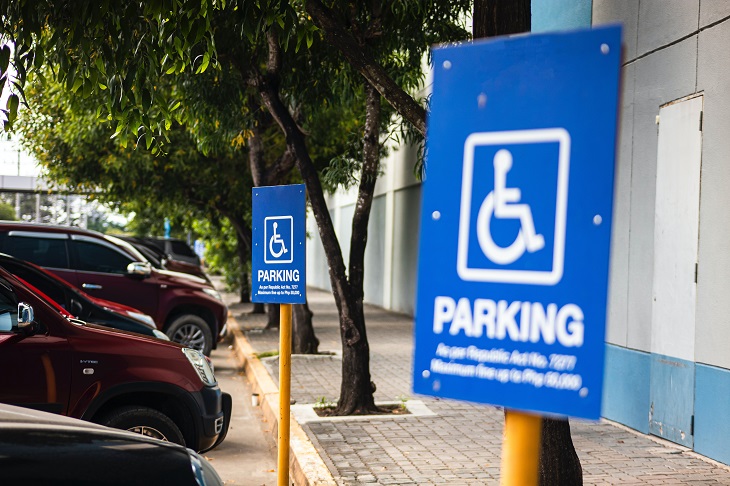Handicap permits serve as essential tools for individuals with disabilities, facilitating accessibility and mobility in their daily lives. However, encountering the theft of such a permit can be distressing and disruptive. In Maryland, where the convenience of handicap permits is highly valued, knowing the steps to replace a stolen permit becomes crucial. In this comprehensive guide, we want to provide clarity and guidance on navigating the process of replacing a stolen handicap permit in the state of Maryland effectively.
Steps to Replace a Stolen Handicap Permit in Maryland
The first step in replacing a stolen handicap permit in Maryland is reporting the theft promptly. Contacting local authorities ensures that the incident is documented, providing a necessary foundation for the replacement process. Documenting the theft comprehensively with details, such as the time, location, and circumstances can help in subsequent steps.
Once the theft is reported, gather the necessary information. Details regarding the stolen permit, including its serial number and expiration date, are essential for the replacement process. Additionally, identification documents, such as a driver’s license or state ID, will be required to verify the permit holder’s identity.
Initiating the replacement process can be done through various channels, including online options and in-person alternatives. Online platforms provided by the Maryland Motor Vehicle Administration offer convenience and accessibility, allowing individuals to complete the necessary steps from the comfort of their homes. Alternatively, in-person visits to designated MVA offices provide a face-to-face option for those who prefer direct assistance.
Completing the required forms for the replacement process and the application documents demonstrate eligibility for a replacement permit. That is when included with medical certification from a licensed healthcare practitioner. Ensuring that all forms are filled out accurately and completely helps expedite the replacement process.
Replacing a Stolen Handicap Permit in Maryland: What to Do
In addition to following the procedural steps for replacement, certain actions can help mitigate the impact of permit theft. Understanding legal obligations regarding the use of handicap permits is essential to avoid any unintentional violations. Safeguarding personal information and remaining vigilant against identity theft are also important considerations.
Seeking assistance from relevant authorities or support services can provide guidance and support throughout the replacement process. Individuals can also check for any additional documentation or requirements specified by the Maryland Motor Vehicle Administration to ensure a thorough and compliant application.
Procedure for Obtaining a Replacement Handicap Permit in Maryland
Navigating the procedure for obtaining a replacement handicap permit in Maryland involves understanding the overall process, including timelines, expectations, and associated fees. While the specific requirements may vary depending on individual circumstances, adhering to established guidelines ensures a smooth and efficient replacement process.
Applicants should be aware of the fee structure associated with replacing a handicap permit in Maryland. While fees may vary, understanding the cost involved helps individuals budget accordingly. Moreover, being informed about the refund policy, which typically offers reimbursement if the permit application isn’t approved, provides reassurance to applicants.
How to Replace a Stolen Handicap Parking Placard in Maryland
Distinguishing between a handicap placard and a license plate is essential when replacing a stolen permit. While both serve similar purposes, understanding the differences helps individuals navigate the replacement process effectively. Applying for a replacement placard involves similar steps as obtaining a new permit, with additional considerations for displaying the placard properly.
In cases where a replacement permit is not immediately available, individuals may need to utilize temporary solutions to ensure continued accessibility. This could involve obtaining temporary permits or seeking alternative transportation options until the replacement process is complete. Ensuring proper display of the permit, whether it’s a placard or license plate, is crucial to avoid any confusion or potential penalties.
Steps for Replacing a Stolen Handicap Permit: Maryland Guidelines
Recapping the essential steps for replacing a stolen handicap permit in Maryland reinforces key considerations and guidelines. Addressing common concerns, such as application timelines and fee structures, helps individuals navigate the process with confidence. Tips for a smooth replacement process, along with resources for further assistance, provide additional support to applicants.
Don’t forget that replacing a stolen handicap permit in Maryland requires prompt action, vigilance, and adherence to established guidelines. By following the steps outlined in this comprehensive guide, individuals can navigate the replacement process effectively and ensure continued accessibility and mobility.
Featured Image by Cottonbro Studio on Pexels.





